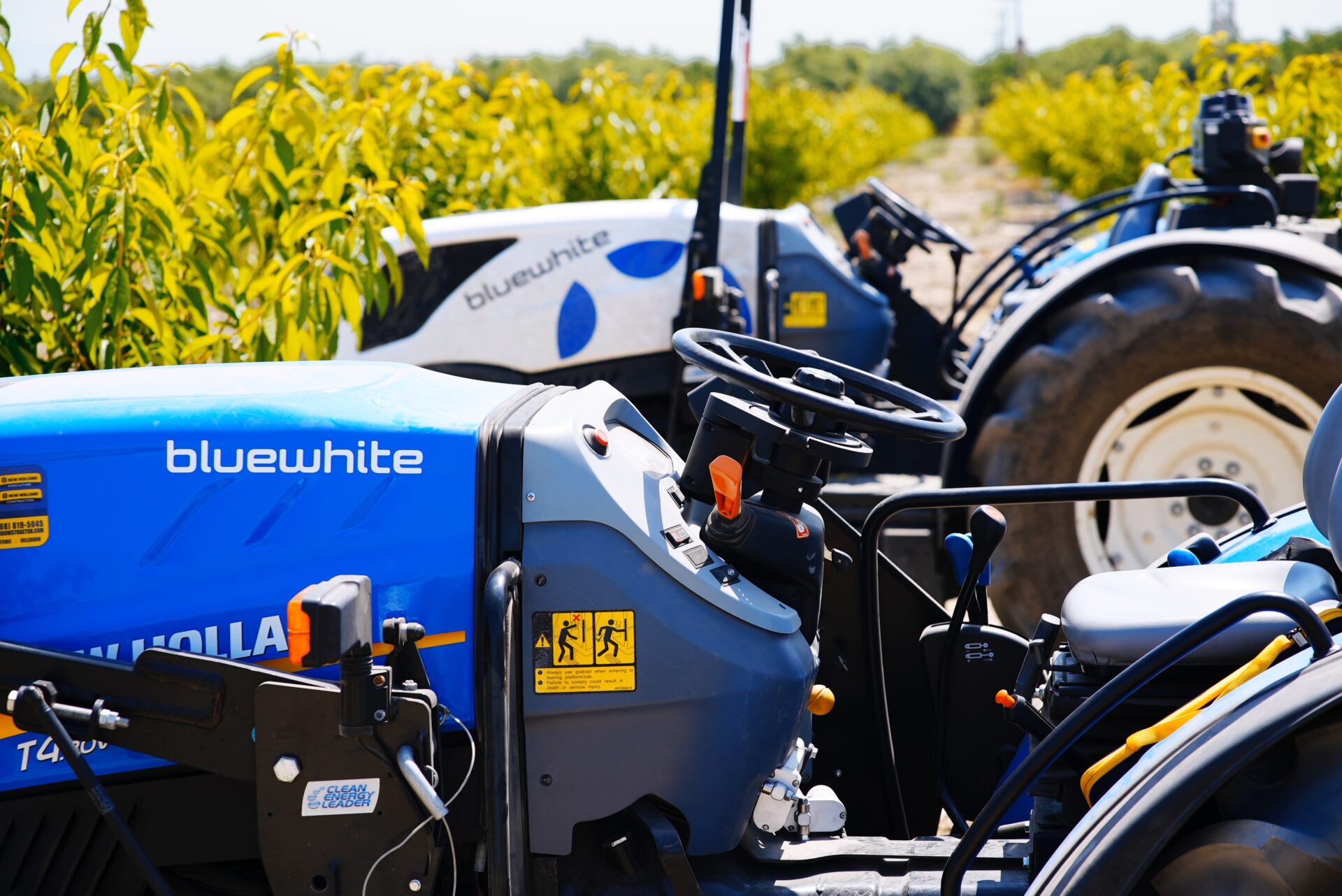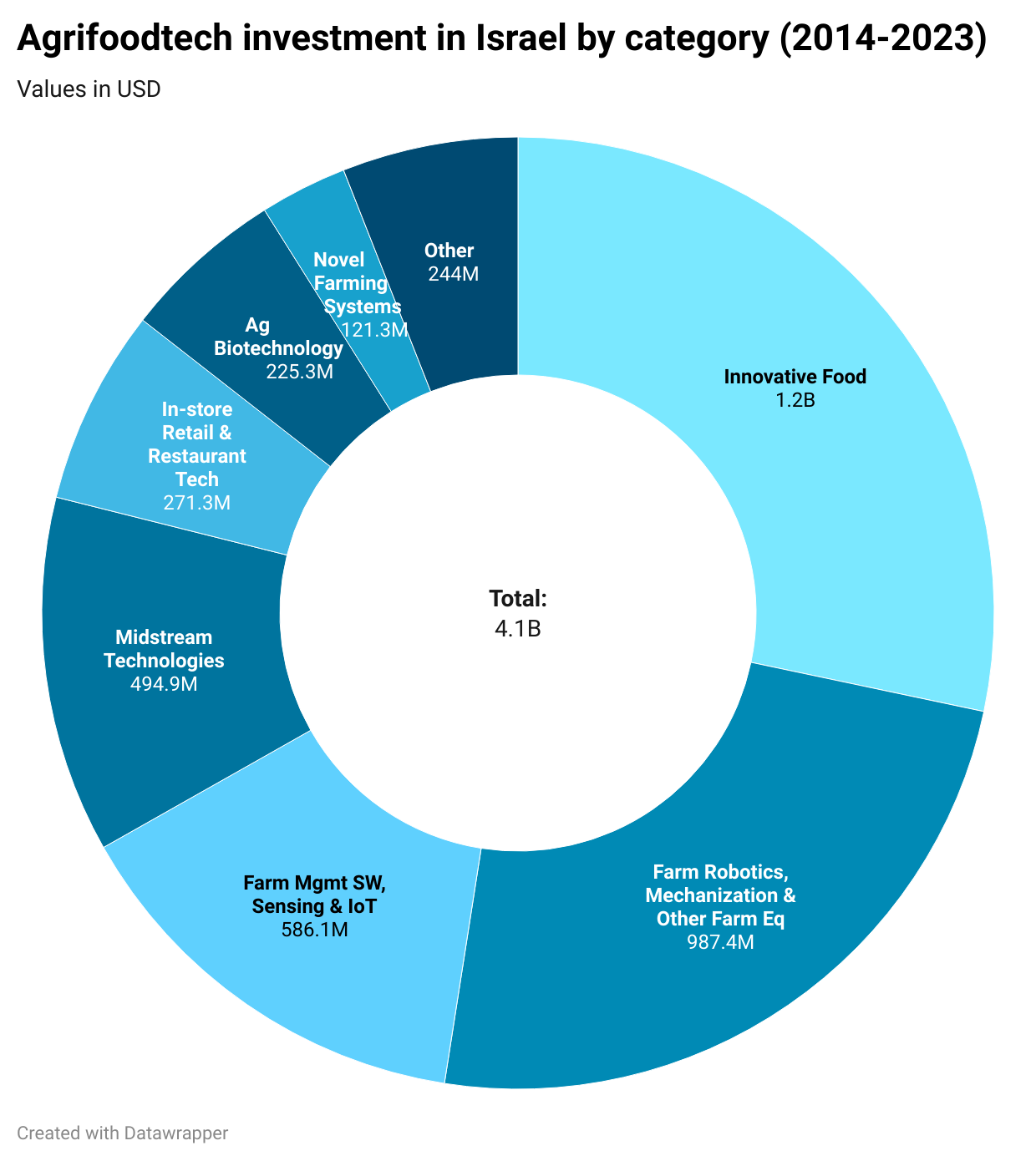It’s perhaps unsurprising that Israel-based agrifoodtech startups have closed just 17 funding rounds since the Hamas attack on civilians that was followed by a protracted war in Gaza. Raising some $161 million since October 7, 2023, the total is a 72% drop on the same period the year before, and some 73% fewer deals. The numbers take Israel’s share of global agrifoodtech funding to just 1%, half what it was over the previous decade.
But Amir Zaidman, chief business officer at The Kitchen, Israel’s leading food tech incubator and VC investor, argues that “these numbers don’t tell the whole story,” pointing to the broader slowdown in foodtech investment globally, especially in alternative proteins.
Global agrifoodtech funding from Oct 7 2023 to Oct 7 2024 was down 9% from the previous 12 months, while the deal count was 1,132, down 44%.
“This affects Israeli foodtech startups much more than the conflict does. The Israeli foodtech landscape is very “alt-protein oriented” and as such might be more affected than other regions. I’m not saying the war has no influence at all – it does – but it is not as dramatic as it might appear.”
Zaidman has a point; in the first quarter of 2024, Israeli agrifoodtech startups raised more funds than in the same period in 2023, before the conflict began
Israeli agrifoodtech: from Covid to-date
Funding over the past 10 years reached an all time high in the first quarter of 2022 when Israeli agrifoodtech startups raised almost $515 million in three months on the back of cheap money and inflated valuations, especially in alt protein.
By contrast, the beginning of the post-boom slump was felt dramatically the following quarter when Israeli agrifoodtech startups raised just $36 million across 15 deals.
A far more muted but nevertheless significant drop in funding also occurred between Q3 and Q4 in 2023, in the aftermath of the Hamas attack on October 7; just two deals closed in the final quarter of 2024. However, as Zaidman says, this doesn’t tell the whole story; funding to Israeli agrifoodtech startups was already on the decline, dropping 78% between Q2 and Q3 2023, before the Hamas attack took place.
As Zaidman observed: “the immediate effect of Oct 7 was massive. We were overwhelmed with grief, frustration and disappointment. It took us a few weeks to get our s**t together. But as always, we did.”
That some $115 million of funding – 71% of all funding during the wartime period – was raised in Q1 2024 hints at this resilience and the actions taken by Israeli companies to adopt contingency plans and promote investor confidence in their ability to do business.
It’s worth noting that some large deals, including a $39 million series C for tractor automation company Bluewhite, contributed to this total.
Looking ahead
Unfortunately as the war has intensified, investment figures have fallen further. While Zaidman argues that there are many investments that fall under the radar and are not reported, he admits that the biggest impact of the war on investor appetite for Israeli innovation is that new investors – those without any Israeli portfolio companies to-date - have not visited the country as they might have done previously.
“These investors are unlikely to invest in an Israeli startup these days. If all I knew about what’s going on was from the media, I would also be reluctant. However, many investors that are familiar with Israel and specifically with the Israeli foodtech ecosystem, act very differently. They will first look at the startup on the business and technology merits, and only to much smaller affect, on the geopolitical situation. We see many non-Israeli investors continue to support their portfolio companies, and, in some cases, investing in new companies (that fit the investment strategy of the investor).
“I think Israeli startups are very resilient and are typically known as companies that can achieve more with less. These days, these qualities are sharpened and become more important than ever. All together I’m optimistic. I believe some of the greatest foodtech companies in the world are in Israel and I believe in the resilience and ability to overcome challenges of Israeli entrepreneurs.”
Top 10 deals raised in Israel since the conflict:
- $39 million raised by Bluewhite, a robotics company transforming tractors into remotely managed vehicles, via a series C round in January 2024;
- $20 million raised by Greeneye Technology, developing precising spaying pest control systems, in April 2024 via a B round;
- $17.5 million raised by SeeTree, a company developing an "intelligence platform for trees", with a series C deal in January 2024;
- $17 million raised by the Mediterranean Food Lab , a solid-state fermentation startup producing flavor ingredients, with an A round in January 2024;
- $14.2 million raised by FreezeM, an ag biotech company making insect-farming scalable, in February 2024 via a C stage deal;
- $10 million raised by Ever After Foods, a cultivated meat startup with a patented bioreactor, with a series A round in June 2024;
- $ 8.1 million raised by WeedOut, a biotech company providing innovative weed control solutions, in February 2024 via a series A round;
- $8 million raised by Galileo Wheel, a startup that developed a tractor wheel reducing soil compaction, with a C round in January 2024;
- $7.5 million raised by Chunk Foods, a company manufacturing clean-label plant-based whole-cut meat, in January 2024 via a seed round;
- $7 million raised by Newmoo, a startup making plant-based cheeses and dairy alternatives, via a seed round closed in May 2024.






